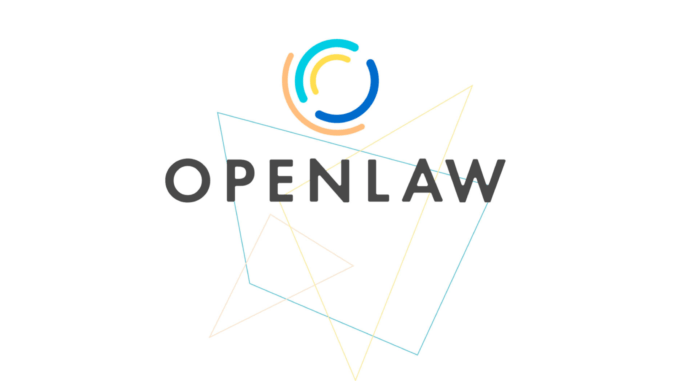
Smart contract pioneer, OpenLaw, has provided more details about its working relationship with legal platform RocketLawyer, as well as two other projects, one in a partnership with global firm, Latham & Watkins, the other with the Loan Trading Syndication Association (LSTA) to automate a revolving credit facility.
The trio of announcements come as complex smart contracts look set to move into the mainstream of the legal world, after a period of development.
First, RocketLawyer, the consumer and SME legal platform. In this video below, OpenLaw co-founder, Aaron Wright, and RocketLawyer founder, Charley Moore, talk about how they see smart contracts working in the legal sector and what their partnership will offer, such as the Rocket Wallet. (About 30 mins.) Enjoy.
OpenLaw has also told Artificial Lawyer it is now working on a project with Latham & Watkins on an Automated Convertible Note. This has taken place in partnership with Ethereum-focused blockchain group, ConsenSys. OpenLaw is part of the ConsenSys stable of supported businesses.
It uses an OpenLaw-based document generator to help startups raise capital with customisable market standard terms and optional digital token provisions. You can check out the tool here.
Yvette Valdez, a partner in Latham’s New York office and member of the firm’s FinTech Industry Group, said: ‘We are very excited to be part of the offering of a convertible note tool that addresses the commodities regulatory issues present in investment structures that offer the investor a right to tokens.’
‘The online document generator builds in protections and much needed flexibility to navigate securities regulatory concerns in nascent token projects,’ added Stephen Wink, a partner in Latham’s New York office, a member of the firm’s FinTech Industry Group, and Co-Chair of the firm’s Blockchain and Cryptocurrency Task Force.
–
And, thirdly, OpenLaw has also announced a partnership with the Loan Trading Syndication Association (LSTA) to automate a revolving credit facility.
Wright explained to Artificial Lawyer: ‘Folks in the blockchain space have talked about syndicated loans for years, but no one has yet built a robust offering demonstrating how ‘smart’ legal agreements and blockchain tech can transform the lending industry.’
‘We’ve taken the first meaningful steps and it shows how this tech could help dramatically streamline these complex transactions, paving the way for more efficient marketplaces for trading loan interests and lowering operational costs for administrative agents,’ he added.
A statement via ConsenSys also explained that the partnership project had demonstrated that:
- The drafting of syndicated loan agreements can be automated, in part, using legal technology tools with evidence of the parties’ agreement and associated electronic signatures stored on a blockchain;
- Smart contracts can be used to automate certain aspects of loan administration, particularly responsibilities performed by the administrative agent, which in turn should potentially lower costs in the loan market;
- Blockchain technology and smart contracts can be used to hard code regulatory compliance, in the form of approved addresses that can help ensure compliance with U.S. KYC/AML requirements;
- Blockchain technology and smart contracts can be used to hard code disqualified lender lists to streamline the borrower consent process; and
- Blockchain technology can be used to digitally represent a lender’s interest in a syndicated loan, creating opportunities to shorten settlement times for syndicated loan trades.
And below is a (silent) video that explains things further:
All in all, further proof that smart contracts are coming of age. Clearly there is still more to do, as ConsenSys says itself of the experiment, as not all provisions of the LSTA Credit Facility can be converted into code-based provisions – though how much that matters is debatable. Either way, the level of testing now and the types of organisations that are doing so is increasingly impressive and great steps forward are being made. The tipping point into broad commercial use cannot be far away.